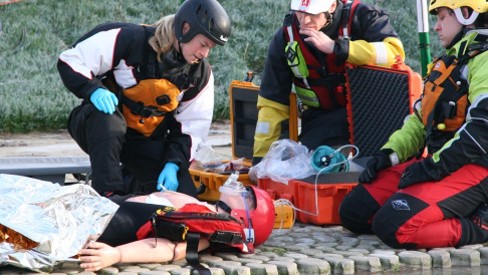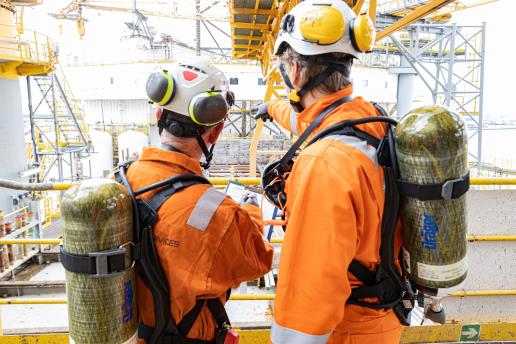TRAINING COURSES
📚 Courses We Offer 📚
Safety, Health & Environmental Engineering & Management
Explore our expertly curated courses designed to elevate your skills and knowledge.
- HE0851 : Certified Lead Investigator
- Date : Jan 11 - Jan 15 2026 / 5 Days
- Location : Doha, Qatar
- Course Details
- HE0913 : Certified Occupational Health, Safety & Industrial Hygiene
- Date : Jan 18 - Jan 22 2026 / 5 Days
- Location : Doha, Qatar
- Course Details
- HE0110 : Certified HAZOP Member
- Date : Feb 01 - Feb 05 2026 / 5 Days
- Location : Cairo, Egypt
- Course Details
- HE0851 : Certified Lead Investigator
- Date : Feb 08 - Feb 12 2026 / 5 Days
- Location : Dubai, UAE
- Course Details
- HE0002 : Professional PHA-HAZOP Leader (CPHL)
- Date : Apr 19 - Apr 23 2026 / 5 Days
- Location : Istanbul, Turkey
- Course Details
- HE0002 : Professional PHA-HAZOP Leader (CPHL)
- Date : Jul 26 - Jul 30 2026 / 5 Days
- Location : Doha, Qatar
- Course Details
- HE0002 : Professional PHA-HAZOP Leader (CPHL)
- Date : Oct 04 - Oct 08 2026 / 5 Days
- Location : Cairo, Egypt
- Course Details
- HE0002 : Professional PHA-HAZOP Leader (CPHL)
- Date : Dec 20 - Dec 24 2026 / 5 Days
- Location : Dubai, UAE
- Course Details
- HE0150 : Safety Engineering & Risk Management
- Date : Jan 04 - Jan 08 2026 / 5 Days
- Location : Dubai, UAE
- Course Details
- HE1142(AD6) : HI and HAZOP Study
- Date : Jan 18 - Jan 22 2026 / 5 Days
- Location : Al Khobar, KSA
- Course Details
- HE1887 : Certificate in Sustainability Management
- Date : Feb 01 - Feb 05 2026 / 5 Days
- Location : Dubai, UAE
- Course Details
- HE1110 : Certified HAZOP Member
- Date : Jan 04 - Jan 08 2026 / 5 Days
- Location : Dubai, UAE
- Course Details
- HE0098(PE7) : Introduction to Process Safety Systems
- Date : Jan 25 - Jan 29 2026 / 5 Days
- Location : Doha, Qatar
- Course Details
- HE2040 : قانون حماية البيئة
- Date : Jan 04 - Jan 08 2026 / 5 Days
- Location : Kuwait
- Course Details
- HE2022 : الامن والسلامة في مواقع الاعمال
- Date : Jan 18 - Jan 22 2026 / 5 Days
- Location : Al Khobar, KSA
- Course Details
- HE0970 : الإسعافات الأولية
- Date : Mar 29 - Apr 02 2026 / 5 Days
- Location : Kuwait
- Course Details
- HE0097 : Certified Process Safety Management (PSM): Auditing & Implementation
- Date : Feb 01 - Feb 05 2026 / 5 Days
- Location : Dubai, UAE
- Course Details
- HE1564 : H2S Safety Engineer H2S Risk Management & Emergency Procedures
- Date : Jan 25 - Jan 29 2026 / 5 Days
- Location : Cairo, Egypt
- Course Details
- HE0931-10D : NEBOSH International Gen Cert
- Date : Apr 12 - Apr 23 2026 / 12 Days
- Location : Doha, Qatar
- Course Details
- HE0931-10D : NEBOSH International Gen Cert
- Date : Nov 29 - Dec 03 2026 / 5 Days
- Location : Doha, Qatar
- Course Details
- HE1378 : IOSH Managing Safely
- Date : Apr 05 - Apr 07 2026 / 3 Days
- Location : Doha, Qatar
- Course Details
- HE1378 : IOSH Managing Safely
- Date : Nov 01 - Nov 03 2026 / 3 Days
- Location : Doha, Qatar
- Course Details
- HE0171 : CCPS Process Safety Professional Certification (CPSP) (CCPS Exam Preparation Training)
- Date : Jun 21 - Jun 25 2026 / 5 Days
- Location : Doha, Qatar
- Course Details
- HE1420 : SO 9001 & ISO 19011 - Audit of the Management System (HSE&Q) & Quality, Environment, Health and Occupational Safety
- Date : Jan 25 - Jan 29 2026 / 5 Days
- Location : Dubai, UAE
- Course Details
Safety, Health, and Environment Training
Our training programs at Haward Technology Middle East combine technical expertise with practical applications, enabling participants to manage workplace safety, promote sustainable practices, and comply with international regulations. With an emphasis on real-world challenges, our SHE training equips engineers, managers, and industry leaders to create safer work environments while supporting long-term environmental responsibility.
Why Safety, Health, and Environment Training Matters
The growing demand for safer workplaces and sustainable business practices has placed SHE training at the center of modern industries. Companies across the oil, gas, power, petrochemical, and construction sectors look for qualified professionals who can integrate health, safety, and environmental standards into daily operations. By pursuing structured learning with us, participants gain practical tools to minimize risks, reduce environmental impact, and strengthen compliance with global industry benchmarks.
Comprehensive Environmental Engineering Courses
Our environmental engineering courses are designed for engineers and technical professionals who aim to expand their expertise in managing pollution control, waste treatment, environmental audits, and sustainable development strategies. These courses cover a wide range of topics, including air quality management, water treatment processes, soil remediation, and environmental impact assessment. Participants develop both technical understanding and applied skills to handle environmental challenges in industrial and urban contexts.
Flexibility with Environmental Engineering Courses Online
We understand that professionals require flexible learning solutions without compromising quality. Our online environmental engineering courses allow participants to study at their own pace while still benefiting from interactive sessions with industry specialists. These programs deliver the same depth of technical knowledge as in-classroom sessions, enriched with case studies and practical examples to bridge theory with real-world applications. Online modules provide an accessible pathway for professionals across the globe to upgrade their skills without interrupting their careers.
Earn an Environmental Engineering Certificate Online
Obtaining an environmental engineering certificate online demonstrates a professional’s commitment to excellence in the field. Our certification programs validate both theoretical knowledge and practical competency, making graduates more competitive in today’s job market. Certificates awarded through Haward Technology Middle East are recognized internationally, offering a career advantage for engineers looking to advance in environmental management, sustainability consulting, or compliance roles.
Specialized Safety and Health Training Programs
Beyond environmental engineering, our curriculum covers core aspects of occupational health and safety. These programs focus on hazard identification, risk management, accident investigation, industrial hygiene, fire safety, and ergonomics. These skills are directly applicable across industries where safety and health play a critical role in operational success.
Certification Courses: Your Pathway to Engineering Progression
Professionals across engineering disciplines can strengthen their credentials through our certification courses for engineers. These programs enhance technical expertise while highlighting leadership skills, compliance knowledge, and problem-solving capabilities. For engineers seeking to broaden their scope into health, safety, and environmental management, these certifications provide a valuable foundation for both career progression and industry recognition.
Shaping Skilled Professionals Worldwide
With decades of experience, our technical training for engineers offers programs that combine academic rigor with field-tested practices. Our courses are designed not only to provide technical knowledge but also to improve decision-making, communication, and leadership skills in high-pressure environments. This combination equips participants with a well-rounded professional profile, essential in industries driven by safety and sustainability standards.
Why Choose Haward Technology Middle East for Your Learning Goals?
- Expert Trainers: Our instructors are industry veterans with hands-on experience in safety, health, and environmental engineering.
- Practical Learning: Every course blends technical theory with real-world case studies, simulations, and exercises.
- Global Recognition: Certificates earned with us are respected internationally, opening doors for career advancement worldwide.
- Flexible Options: Choose classroom-based, online, or blended learning formats to suit professional commitments.
Who Should Attend this Training?
Our programs are suited for:
- Civil, environmental, and industrial engineers.
- HSE managers, supervisors, and coordinators.
- Professionals in the oil, gas, petrochemical, and power industries.
- Professionals aiming to broaden their expertise in sustainability practices and regulatory compliance.
These courses provide participants with actionable knowledge to handle complex challenges in safety and environmental management across diverse sectors.
Take the Next Step with Haward Technology Middle East
Safety, health, and environmental management are no longer optional; they are essential drivers of industrial success and sustainability. By training with Haward Technology Middle East, professionals gain the tools, knowledge, and confidence to lead in this field.
Start your journey today by exploring our environmental engineering courses, and earn a reputable environmental engineering certificate online. Learn with the experts and elevate your career while contributing to a safer, more sustainable future.
Ready To Advance Your Career?
Connect with Haward Technology Middle East today and explore a wide range of globally recognized programs designed for engineers and industry leaders. With expert guidance and flexible formats, we make it possible to achieve professional excellence without disrupting your career path.





















